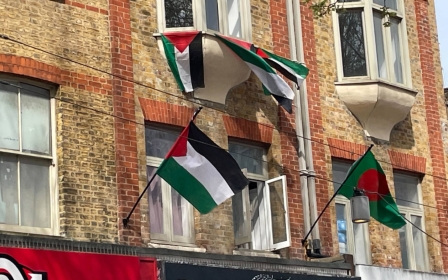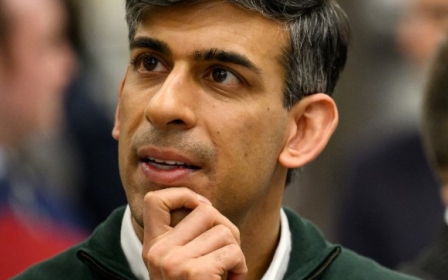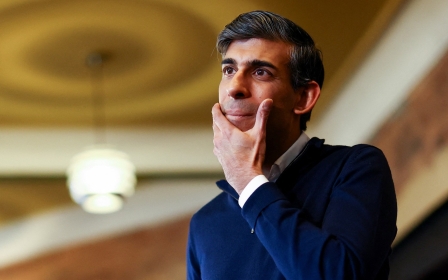UK court rules prayer ban at London school not unlawful

A British Muslim student has lost a High Court challenge against a London school's ban on prayer rituals, in a case about freedom of religion that has captured national attention.
The pupil, who cannot be named, took legal action against Michaela Community School north west London, claiming the policy was discriminatory and "uniquely" affects her faith due to its ritualised nature.
She alleged that the school's stance on prayer – one of the five pillars of Islam – was "the kind of discrimination which makes religious minorities feel alienated from society", a judge was told.
The court was told the pupil, referred to only as TTT, was making a "modest" request to be allowed to pray for around five minutes at lunchtime, on dates when faith rules required it, but not during lessons.
The student also challenged allegedly unfair decisions to temporarily suspend her from school. The school's lawyers claimed its prayer policy was "justified" and "proportionate" after it faced death and bomb threats linked to religious observance on site.
Stay informed with MEE's newsletters
Sign up to get the latest alerts, insights and analysis, starting with Turkey Unpacked
In a written ruling, Justice Thomas Linden dismissed the pupil's arguments, ruling that by enrolling at the school she had effectively accepted being subject to restrictions on manifesting her faith.
He concluded that the prayer ritual policy was "proportionate" and its aims and ability to achieve them "outweighs" any "adverse effects" on the rights of Muslim pupils at the school.
The judge added that the pupil could perform "Qada" prayers for missing prayers earlier in the day "to mitigate the failure to pray within the allotted window."
According to the written ruling, the school's founder and headteacher, Katharine Birbalsingh, said she had spoken with an Imam at the London Central Mosque and Islamic Cultural Centre who said observant Muslim pupils who miss the midday prayer, or dhuhr prayer, can make it up later in the day.
According to the judgement, Birbalsingh also said the Imam offered to speak to any Muslim parents who had doubts on this point.
The student and her mother said through their lawyers that they were upset with the ruling.
"Even though I lost, I still feel that I did the right thing in seeking to challenge the ban," the girl said. "I tried my best and was true to myself and my religion."
In March 2023, up to 30 students began praying in the school's yard, using blazers to kneel on.
Lawyers for the school said students seen praying outside contributed to a "concerted campaign" on social media over the school's approach to religion, with there also being a since-removed online petition attracting thousands of signatures.
Following the verdict, Birbalsingh, who has gained a reputation for strictness and regularly appears as a commentators on British TV, said "a school should be free to do what is right for the pupils it serves."
She also claimed that a tiny number of Muslim students had forced others "to fast, to pray, to drop out of the choir, to wear a hijab."
"Schools should not be forced by one child and her mother to change its approach simply because they have decided they don’t like something at the school," she said.
Middle East Eye delivers independent and unrivalled coverage and analysis of the Middle East, North Africa and beyond. To learn more about republishing this content and the associated fees, please fill out this form. More about MEE can be found here.





